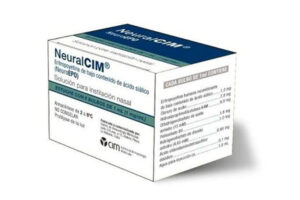 Havana, Cuba.- Cuba has recorded a new achievement with the health registration granted to NeuroEpo, an innovative medicine to delay the progression of mild to moderate Alzheimer’s disease and improve the life of people suffering from that condition.
Havana, Cuba.- Cuba has recorded a new achievement with the health registration granted to NeuroEpo, an innovative medicine to delay the progression of mild to moderate Alzheimer’s disease and improve the life of people suffering from that condition.
Cuban President Miguel Díaz-Canel praised the decision made by the Center for State Control of Medicines, Equipment and Health Devices, and called the news excellent.
He once again thanked Cuban science and its dedicated scientists, in particular all those involved in the project developed by the Molecular Engineering Center (CIM) of Havana.
“Treating neurodevelopment disorders in children is one of the priorities of the post-pandemic phase,” the head of State emphasized.
Cuba’s top authorities knew about the program for integral attention to children with those disorders conducted at the Borrás-Marfán Children’s Hospital in Havana which, Díaz-Canel said, “has had very good results.”
This experience will be taken to other provinces such as Villa Clara, Holguin and Santiago de Cuba, announced Díaz-Canel, who is also the First Secretary of the Cuban Communist Party (PCC). The dream is to extend it to the entire country, he added.
The medicine registration will be valid for three years, to become effective after the issuing date of the registration certificate, said CIM General Director Eduardo Ojito.
The condition to register this product is established to confirm the results of a phase III clinical trial to assess its efficacy, with the request for its approval to be presented within not more than six months, the Director of the biotechnological institution explained.
According to the experts involved in the NeuroEpo clinical trials, along the course of their 27 years’ experience in treating patients with this disease, they had never seen any improvement in the natural progression of the disease.
CIM Director of Clinical Research, Tania Crombet, explained it is a nasal administration drug, very easy to be used by caregivers.
The use of this product to treat other diseases such as ataxia, Parkinson, ischemic brain damage and COVID-19-related aftereffects is being studied, she noted.
More than 50 million people in the world are affected by different types of dementia, and this number continues to grow every three seconds. Therefore, this is a challenge for the island, where nearly 170,000 people suffer from this affliction, according to figures by the Cuban Public Health Ministry.
That number accounts for ten percent of the people over 65 years old -1.3 percent of the total population. Its prevalence rate is estimated at 10.2 percent for each 100 Cubans 65 years or older, being Alzheimer’s disease the more common cause.